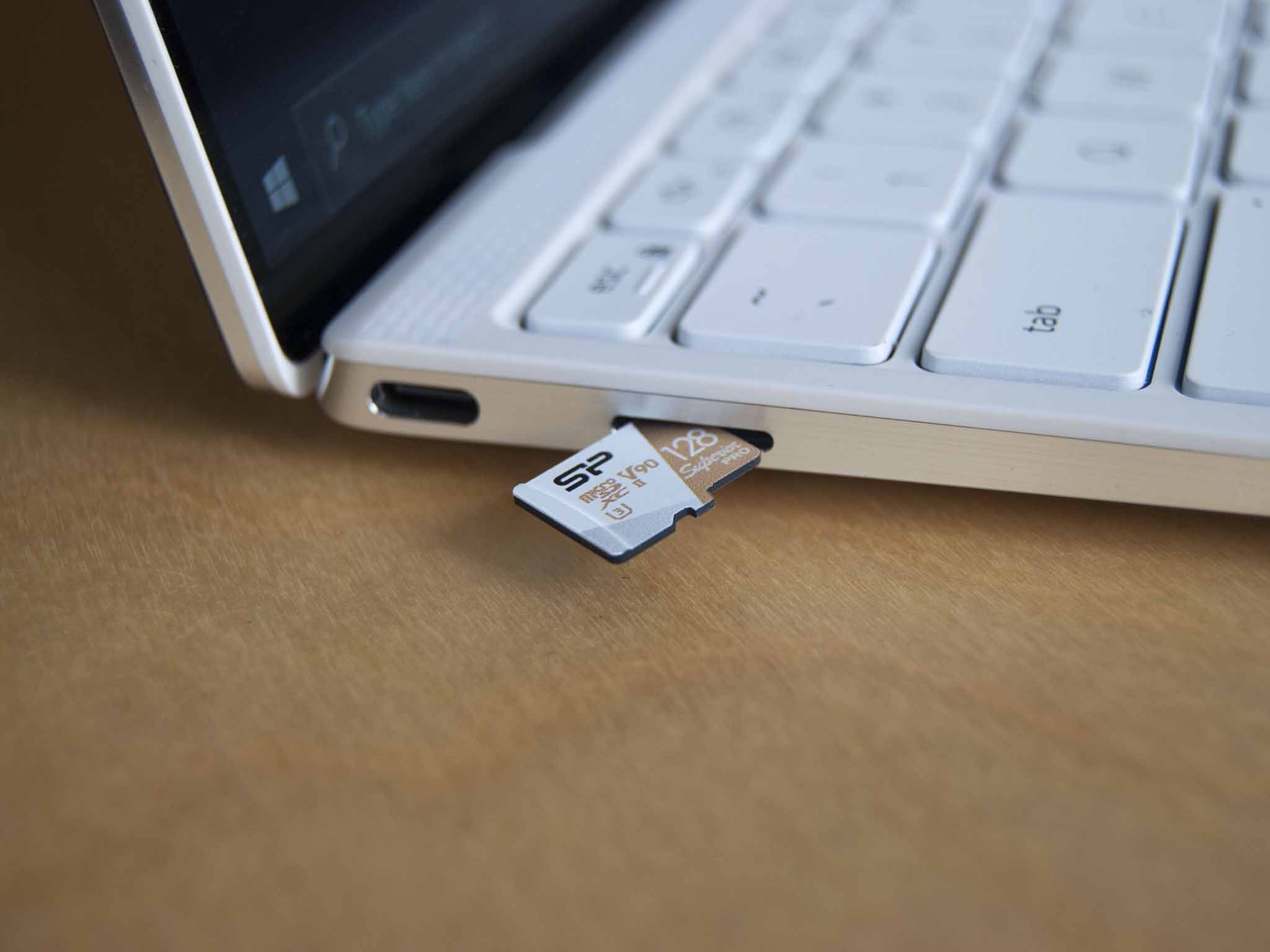Silicon Power has a generous lineup of removable storage, including plenty of microSD cards. The Superior Pro is a UHS-II microSDXC option that appeals to those who work with large file sizes — think videographers and photographers — thanks to high-end speed classes across the board. I've been using the Superior Pro for general and photography work for a few weeks to see how well it works and whether it's worth a buy.
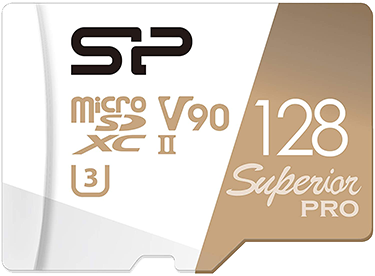
Bottom line: Silicon Power's Superior Pro 128GB microSDXC card is a great option for videographers and photographers who need steady performance. Grab it in 64GB or 128GB sizes.
For
- Good performance to price ratio
- UHS-II V90 performance
- Suitable for photo and video work
- Full-size SD adapter included
Against
- Only available in two capacities
- Five-year warranty relatively short
What you'll love about the Silicon Power Superior Pro
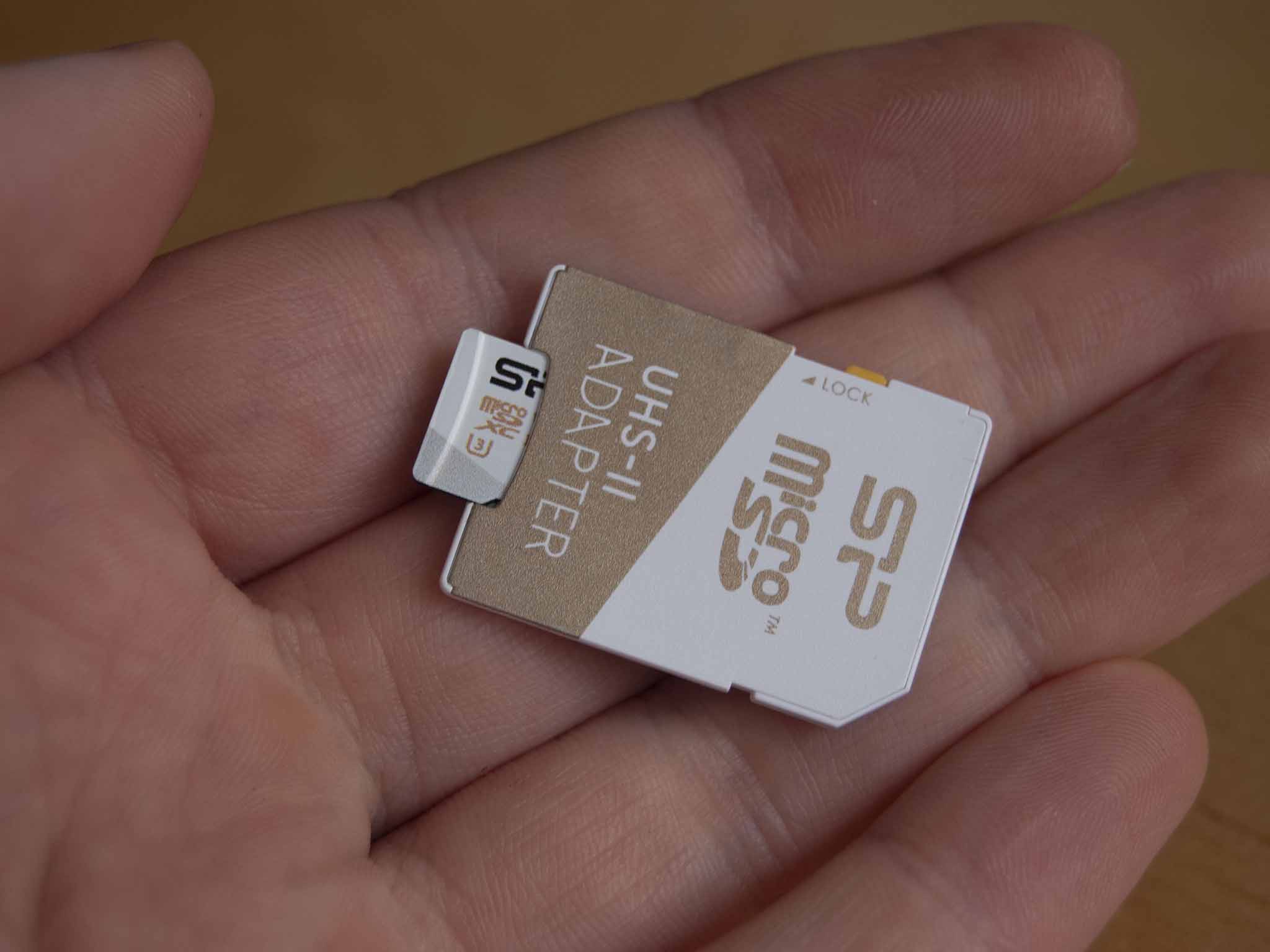
| Category | Spec |
|---|---|
| Form | microSDXC |
| Speed | UHS-II U3V90C10 |
| Capacity | 128GB |
| Maximum read | 290MB/s |
| Maximum write | 160MB/s |
| Durability | Minimum 10,000 insertions |
| Warranty | Five years |
Silicon Power's Superior Pro is a microSDXC card compatible with UHS-I and UHS-II card readers. Fret not if your device doesn't have the smaller card reader; a full-size SD adapter is included. The Superior Pro has some high-end specs that will appeal to the professional field, including a V90 video speed class with a minimum 90MB/s sequential write speed (necessary for 8K video recording), U3 UHS speed class that's at the top end of what's necessary for FHD video, and a C10 standard speed class that's also at the top end of standard video. These classifications all generally fold in together, but rest assured this is a high-end card.
I ran some synthetic benchmarks with CrystalDiskMark 7 and ATTO Disk Benchmark to get an idea of how the card measures up to advertised performance.
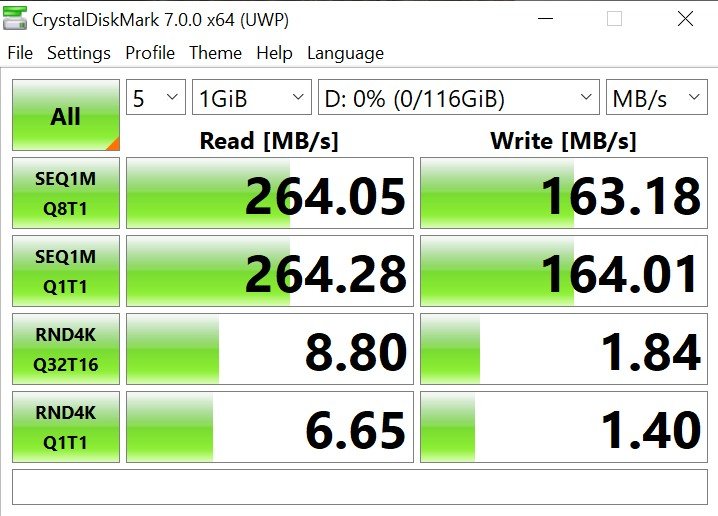
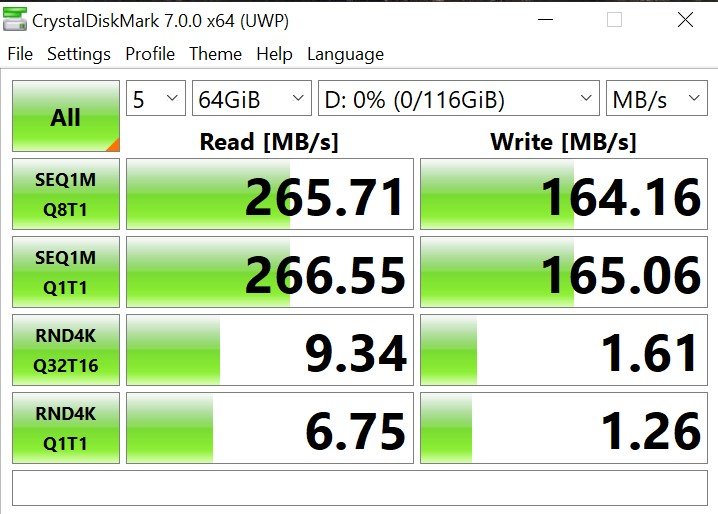
The Superior Pro doesn't quite hit its advertised maximum speed using CrystalDiskMark 7 to test sequential and random read and write performance. This is using a UHS-II microSD card reader in a Dell XPS 13 9300, and it holds true when testing with a 1GiB test file and a 64GiB test file. It's still a strong performer.
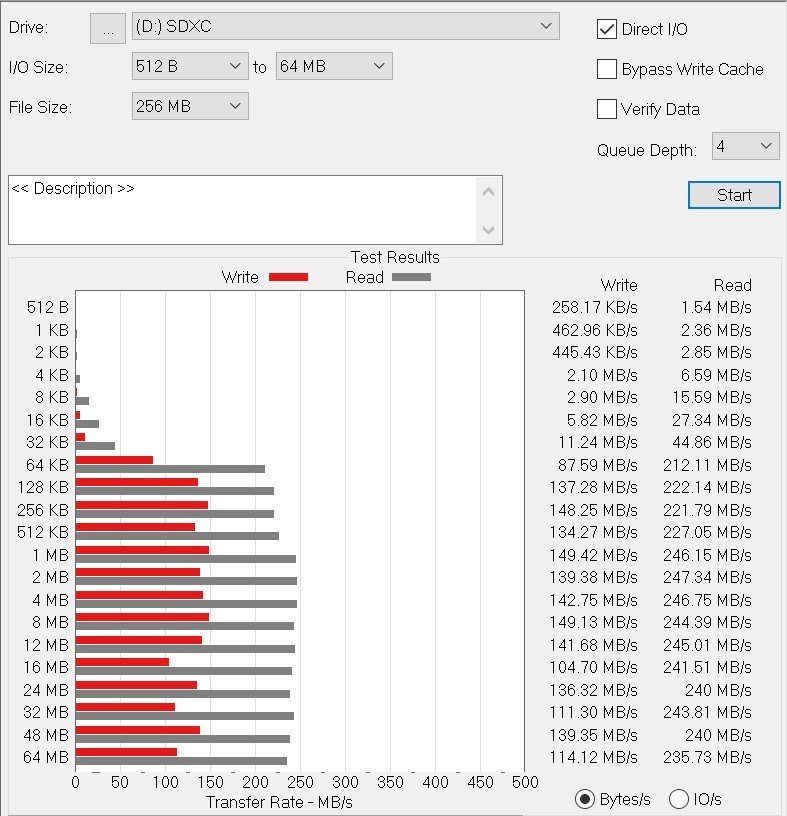
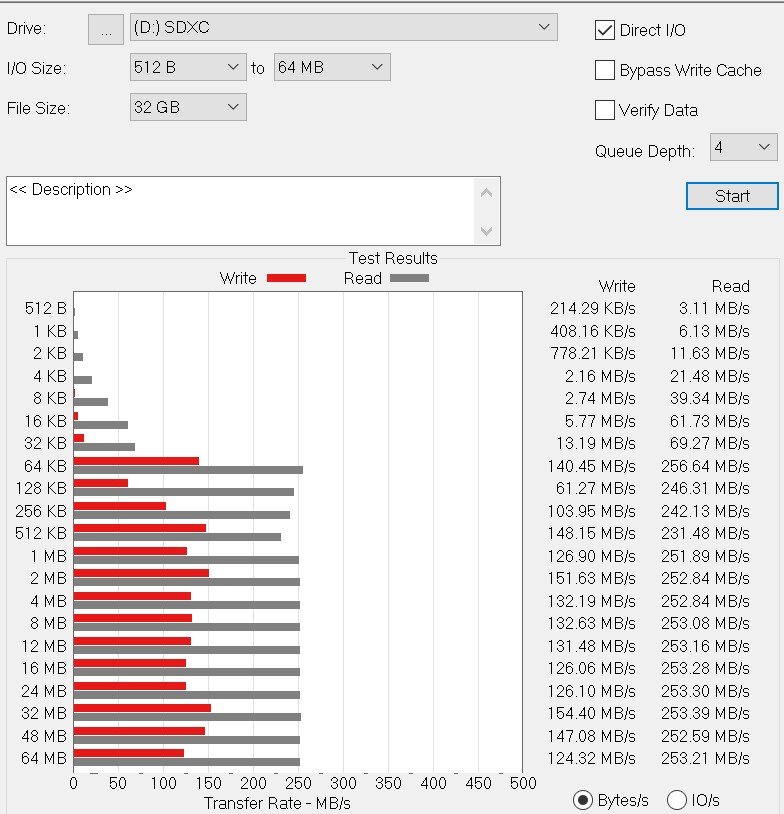
Using ATTO Disk Benchmark, we can test how well the microSD card works with small (256MB) file sizes and large (30GB) file sizes. Performance is steady in both tests, which is expected with a card that's intended for use with high-resolution video and photos.
What you'll dislike about the Silicon Power Superior Pro
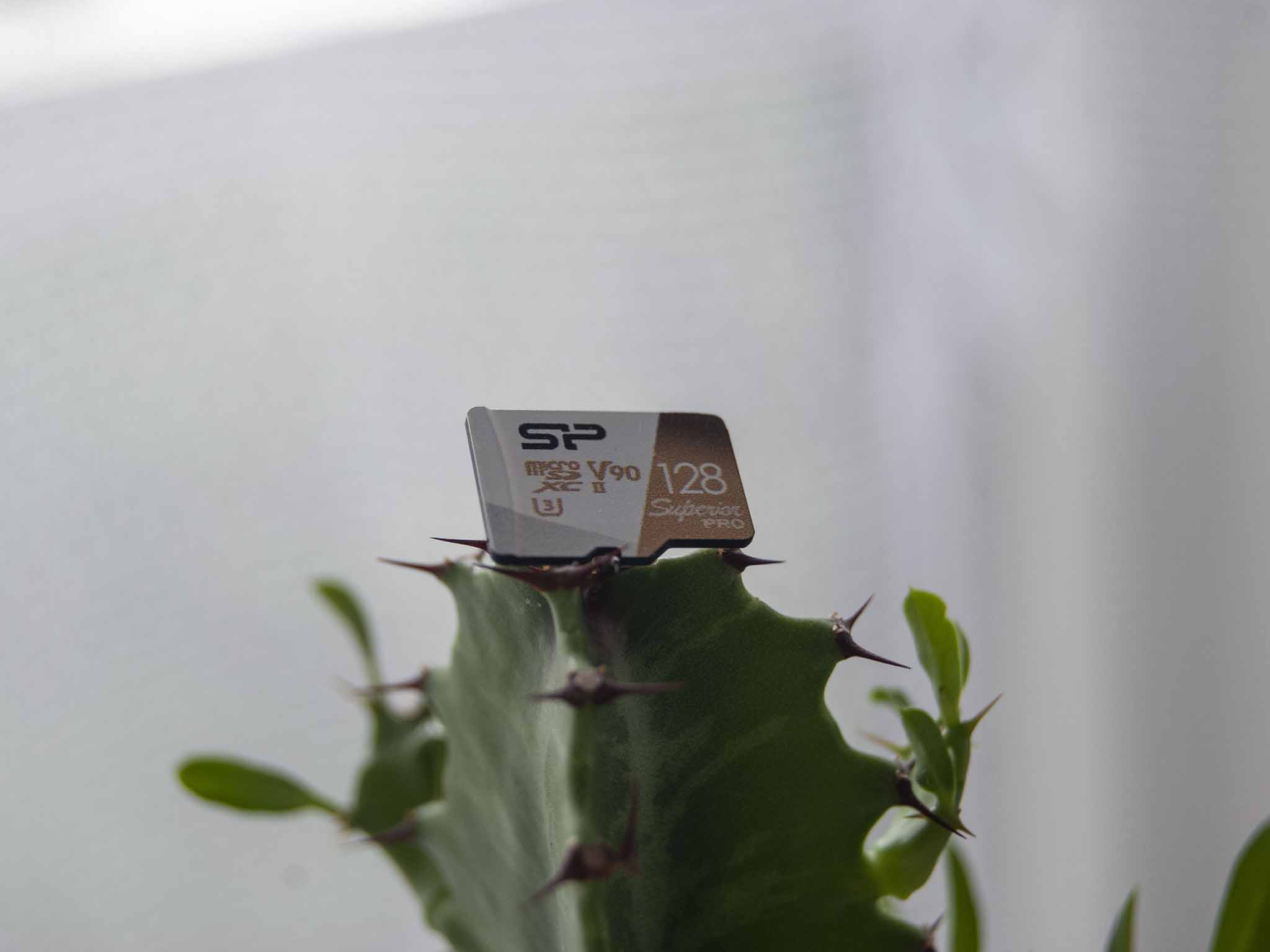
The Silicon Power Superior Pro uses the UHS-II interface for improved speeds over UHS-I, so if your laptop or card reader is only UHS-I, you're not going to get the most out of the microSD card. It will still certainly work, but speeds will be cut significantly. If you're not planning on upgrading your card reader anytime soon, you can go with one of our picks for best microSD card using the UHS-I interface (which will generally cost less). And if you're in need of something other than 64GB or 128GB, the Superior Pro is also off the table; those are the only sizes available.
One other thing to watch out for is the five-year warranty. That might seem like a reasonable deal at first, but a lot of the competition offers a better deal. For example, the Lexar Professional 1800x with UHS-II, V90, U3, and C10 ratings costs a couple dollars more but has a lifetime warranty.
Should you buy the Silicon Power Superior Pro?
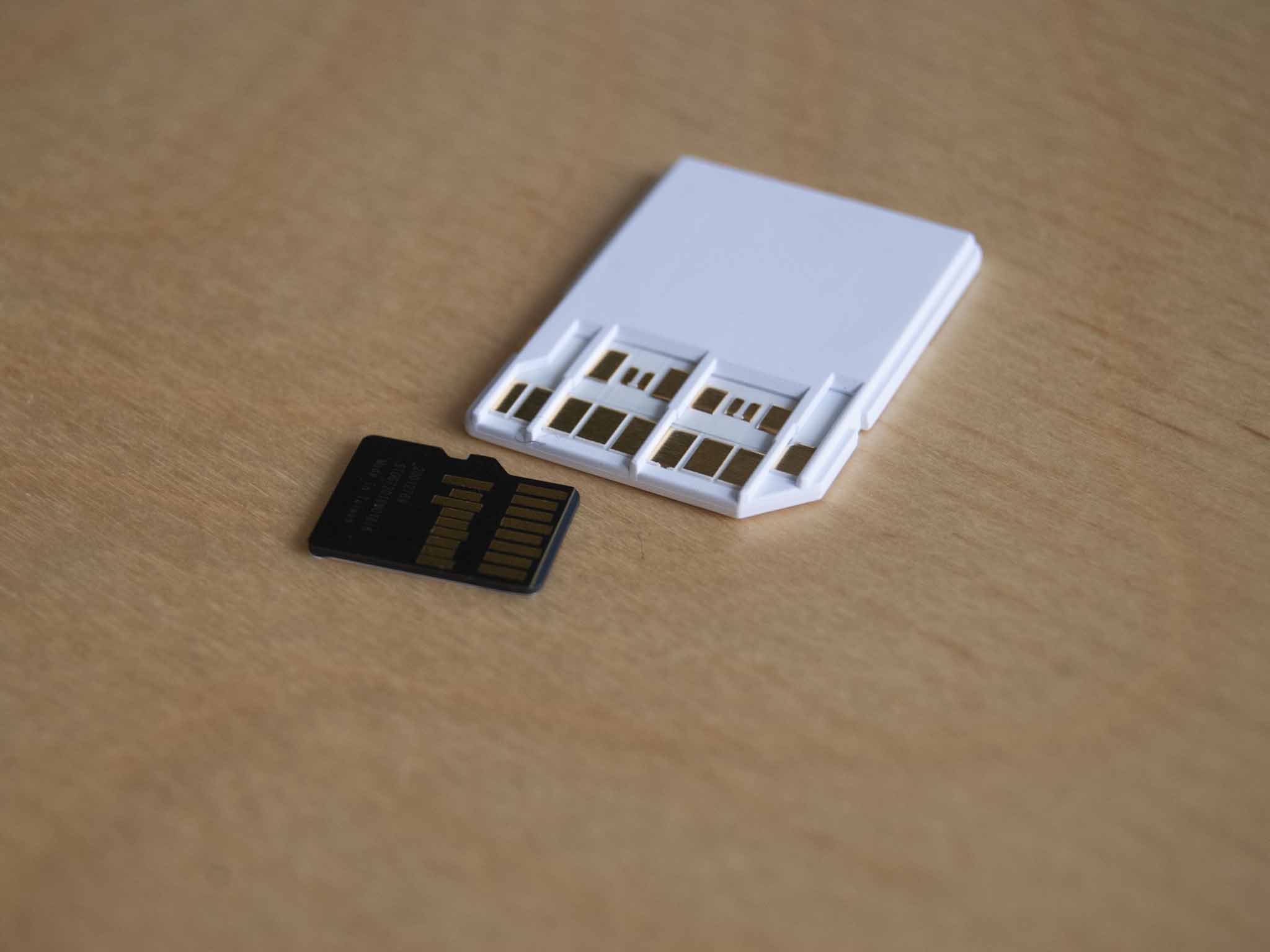
Silicon Power's Superior Pro is a great little storage solution with high-end specs. Its V90 video rating means it can technically handle 8K video, and otherwise it offers strong read and write speeds thanks to UHS-II interface compatibility. Just don't expect sizes other than 64GB and 128GB.
If you're still using a UHS-I card reader or just need some simple storage for small file transfers it's probably not worth the money, but for professionals it's an enticing option that costs less than a lot of the competition.

Cale Hunt brings to Windows Central more than eight years of experience writing about laptops, PCs, accessories, games, and beyond. If it runs Windows or in some way complements the hardware, there’s a good chance he knows about it, has written about it, or is already busy testing it.
